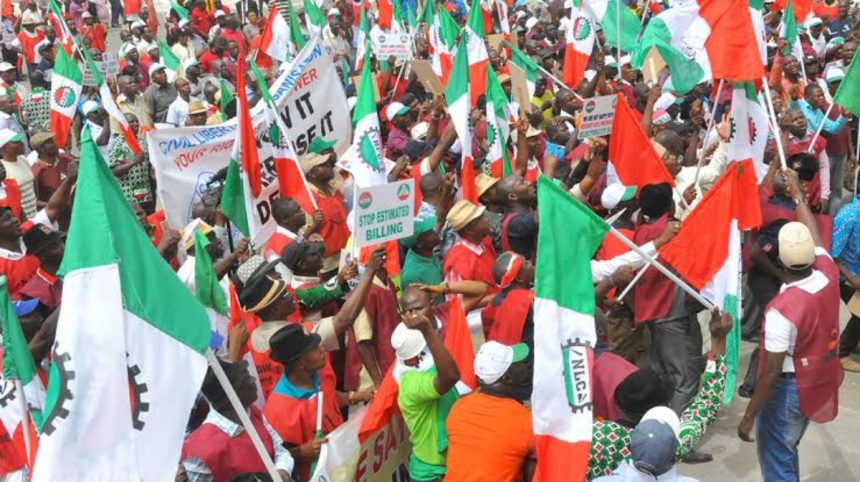Despite the Federal Government’s initiative to introduce a supplementary wage award of ₦35,000 to alleviate economic pressures, 15 states remain non-compliant eight months later, while seven others have discontinued the payment after an initial brief compliance.
The supplementary wage, intended as a temporary relief until a new minimum wage is established, has not been adopted by these states, leading to the Nigeria Labour Congress (NLC) criticizing the move as highly insensitive.
The NLC has voiced its concern over the hardships faced by workers due to what it perceives as the government’s anti-poor policies.
While some states have neglected the wage award, 15 others are providing their employees with additional payments ranging from ₦10,000 to ₦40,000 as wage awards or salary increments.
The states in default include one from the South-East, four from the South-South, three from the North-East, two from the North-Central, and five from the North-West. Conversely, states like Delta, Niger, Plateau, Kaduna, Bauchi, and Nasarawa initially paid the wage awards for a period ranging from one to four months before ceasing the payments.
In contrast, states such as Lagos, Edo, Bayelsa, Imo, Enugu, Anambra, Ebonyi, Ondo, Osun, Ogun, Oyo, Ekiti, Kano, Kwara, Cross River, and Taraba have maintained the payment of wage awards to their workers.
President Bola Tinubu, during a March visit to Minna, Niger State, called upon the governors of all 36 states to initiate the payment of wage awards, emphasizing that such a measure would ease the nation’s hardship. Despite his appeal, many states have yet to start the payment process.
In Delta State, a committee has been established to review wage-related issues, with the Commissioner for Information, Dr. Ifeanyi Osuoza, affirming that all matters concerning worker emoluments will be examined.
The governments of Rivers and Akwa Ibom are awaiting an official announcement from the Federal Government regarding the wage increase.
Governor Umo Eno of Akwa Ibom has pledged to adopt the new minimum wage once it is enacted, committing to the welfare of the state’s workers.





